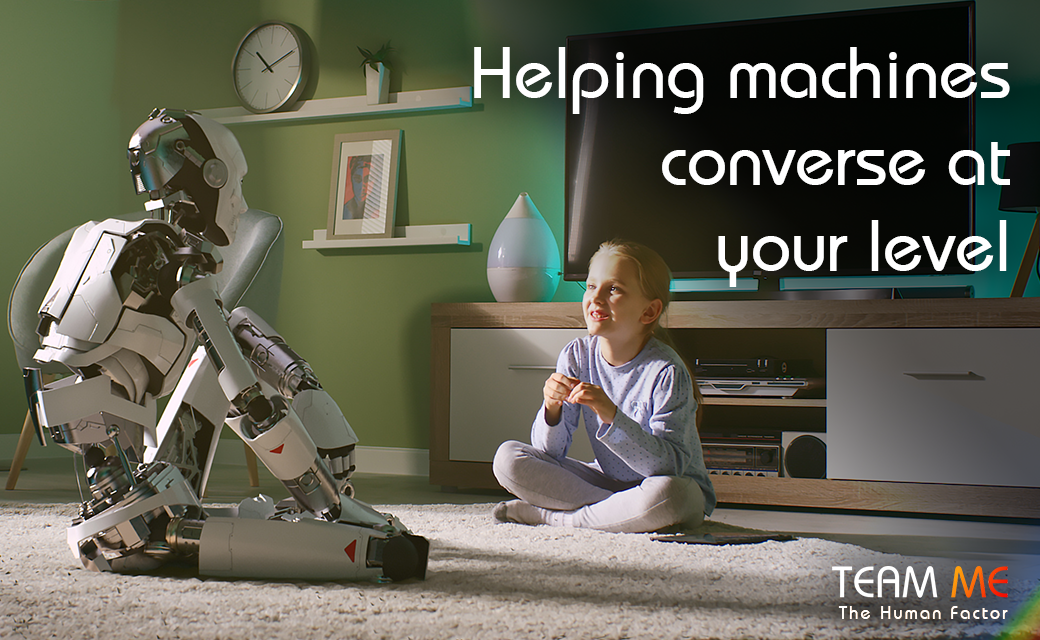|
Affective Computing relates to the design of computers and technology to recognize, interpret, and respond to human emotions. This area of research is important as it seeks to allow AI to create more emotionally intelligent connections with the humans they engage with. Robots may not, as yet, have their own emotions but for us humans the relationships we have with our machines always contain an emotional component – sometimes a very significant one. We see people talking lovingly to their cars, affectionately stroking the sides of their boats, speaking encouragingly to their laptops, or expressing delight when their machine delivers a welcome response. Maybe someone even closer to home has shouted in frustration at their ‘stupid machine’ when it has failed to perform. Meeting the Human Need Humans have an innate need for connection and cooperation and, because of this, have always sought to anthropomorphise the objects and animals around them. We often give them names and may, quite naturally it seems, assign them a gender. Our interaction with any significant entity can easily become a ‘relationship.’ This dynamic has been amplified all the more over the past decade or two as machines have been given the ability to converse with us using natural language. Humans thrive when they perceive that their personal feelings are evidently being accounted for in any interaction. In our friendships we tend to gravitate towards those people who are on our wavelength; those who share our values and perspectives. Our relationships with talking machines are no different, meaning that we will find ourselves getting on much better with machines that are able to adopt language patterns that reflect our values. Vanilla responses, those programmed in the factory and delivered to every user regardless of their emotional constitution, are simply not enough to create meaningful engagement. Such interactions will never succeed in getting the best out of the humans involved in these conversations. The Mechanics of EmotionAcknowledging that machines do not have emotions, how can we build AI that is able to create a sense of emotional connection? In order for AI to create a sense of emotional connection with a human being, it must be able to recognize and understand specific signals (data input) that relate to human emotion. But what kind of inputs would be required to inform our AI of our individual ways of looking at the world? This, of course, would be a prerequisite to the machines adopting the language patterns required to create a positive emotional experience. AI is now advanced enough to perceive, and then mimic, human facial expressions, it can use natural language processing to interpret the emotional content of text or speech and it interpret gestures and bodily movements - which provide important and meaningful signals that the human is often unaware that they are communicating. Data Input Emotions themselves are complex, of course, and our machines need not only the ability to accurately perceive the emotional state of the individual they're talking to, they must also have the ability to respond in an appropriate and engaging way; using expressions that convey (simulate) appropriate emotions. Whatever language processing goes on inside the AI, the machine is entirely dependant on accurate and usable data inputs. Beyond natural language processing, huge efforts are being made to develop sensors that detect and interpret biometrics of many kinds but there is a method that can simplify things enormously; a method that does not even require advanced sensory input to provide extremely useful data. The Solution What if we were able to provide our AI machines with a map of the individual’s core emotional make-up? What if we could capture the data necessary to diagnose the individual’s dominant motivations and decision-driving values? …and do all this with just 90 seconds of input from the human involved. The AI could then store this data and use it to select the most affective language for that individual; phrases that resonate and ‘get on the wavelength’ of the individual - building rapport, encouraging and motivate them in action. AI that can emotionally connect with humans in this way is significantly more engaging, more helpful and more successful than AI that simply spouts dry instruction or information with no consideration of the individuals’ emotional constitution. Team Me provides the data input model, the classification types, and the language sets that make all this possible. If you are involved in affective computing and are committed to driving things forward, I’d love to hear from you.
|
AuthorPad is a trusted adviser to business leaders across the globe. He is Director at Come Alive Success Coaching ltd. and the Author of TEAM ME - How to Play Your Best Game in Life, and TEAM GUY - Forging Men of Soul & Steel. Archives
August 2023
Categories
All
|



 RSS Feed
RSS Feed